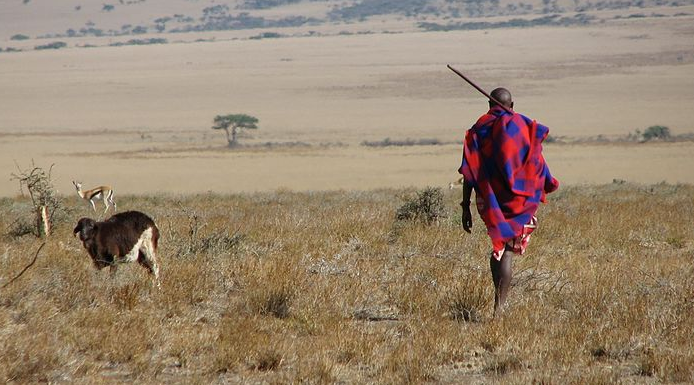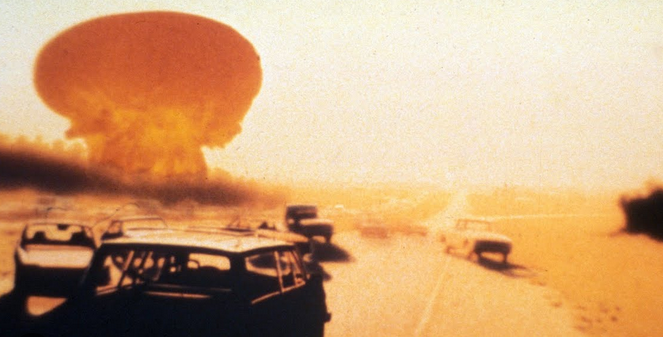Mugabe: “Ian Smith is responsible for the death of well over 50,000 of my people. I bear scars of his tyranny which Britain and America condoned. I meet his victims everyday.�
[Africa News Update]
The death of Ian Smith, Rhodesia’s last white leader who brought untold suffering to millions of Zimbabweans during a 16-year protracted armed struggle which ended in Zimbabwe’s 1980 independence went largely unnoticed in Zimbabwe.
Most people were unmoved by the death of a man which the Zimbabwe Herald reported symbolized “the worst racial oppression.”
His death was a dull and dreary affair in a retirement home in the St James area in Cape Town where only his stepson and widowed stepdaughter cared for him to the last moment despite having been in the limelight beginning in the 1960s until his defeat by Robert Mugabe in general elections.
“What can compel a sane person to waste precious tears on such an unrepentant racist?” wrote Kamutenga Dillon in a letter which appeared in the Zimbabwe Herald.
“Smith, PW Botha and Adolf Hitler belong to the same political graveyard. I was born free but atrocities committed by the Smith regime still haunt many in Zimbabwe.”
The writer, capturing the sentiment of many here added: “Smith wanted to protect his kith and kin after announcing his infamous Unilateral Declaration of Independence on November 11 1965. Our parents, grandparents and siblings suffered at the hands of this heartless man. I won’t miss a monster, though my progressive African culture does not allow me to speak ill of the dead, I am sure it can exempt me on Smith.”
In the streets of Harare, people largely unmoved preferring to go about in their usual business.
Many said they had read about Smith’s death in newspapers and they felt unconnected to a man who was responsible for the killing of more than 50,000 people in bombing raids in neighboring Zambia and Mozambique at the height of the 1970s war of independence.
“He is dead so we hear. I’m not moved at all about his death. Maybe it’s because there is nothing good that I can directly relate to Smith’s rule,” said Monica Magama, a school teacher here in Harare.
The mainstream international media was largely sympathetic to Smith preferring to fill their pages with criticisms of Mugabe’s rule and glossing over the murder of thousands of Zimbabweans in war camps in neighboring countries.
His bombing raids on neighboring countries were glossed over and some reports gave prominence to Smith’s participation as a Spitfire pilot during the Second World War.
“The sensible chap, in fact, turned out to be the type of African leader that ‘good old Smithy,’ as his supporters called him, had campaigned against throughout the UDI years. He became the embodiment of corrupt, violent, amoral African dictatorship – just as Smith had warned his supporters,” wrote Graham Boynton in an obituary titled: “Ian Smith has sadly been proved right” which appeared in the U.k.’s Telegraph.
“Let us not forget the context of Smith’s determination to hang on to white rule in the 1960s. At the time that he claimed to be defending ‘civilized standards’, Rhodesians had already witnessed the flight of Belgian refugees from the Congo; Idi Amin had trashed Uganda, and Mobutu Sese Seko was about to introduce an even more brutal and dysfunctional regime in neighboring Zaire; immediately to the north of Rhodesia, Kaunda’s Zambia was in a mess, riddled with corruption and economically mismanaged, and Malawi was being similarly misruled by the eccentric despot Hastings Banda. So why, Smith argued, would Mugabe be any different? Why, indeed.”
A fantastic lie, considering that Idi Amin did not seize power in Ugandan until 1971.
“However ponderous, however humorless and unsophisticated he was, Smith had run a successful emerging African country and, although the whites were the main beneficiaries, there was increasing prosperity among the black population,” added this apologist for white supremacy.
“Above all there was a sound, intelligently managed economy, free from the post-colonial blight of corruption.
“Today, Zimbabwe is a failed state with a non-functioning economy, a once-flourishing agricultural sector now moribund, and a population on the brink of starvation,” Boynton said.
In this obituary, there is no reference to the stranglehold sanctions and virtual embargo against Zimbabwe, that has battered the economy, and which are orchestrated by the U.K. and the U.S.; both countries had rejected such punitive sanctions against Ian Smith’s Rhodesia.
Not even, Mugabe’s strengths in the education and health sectors soon after independence were mentioned. Mugabe is simply a “bad man” to Boynton and his ilk.
Smith had swiftly and ruthlessly imprisoned thousands of Black leaders, drove many others into exile and introduced draconian laws curbing civil rights and press freedom.
He jailed Mugabe for 11 years calling him a “terrorist.” When Mugabe took over power in 1980, Smith became leader of Zimbabwe’s opposition renamed Republican Front, but his support among whites waned. Mugabe treated Smith with great magnanimity, allowing him to stay in Parliament until 1986 and to keep his farm.
He also let him enjoy a quiet retirement in Harare and was free to attack Mugabe with impunity. Smith left Zimbabwe voluntarily and retained ownership of his ranch until his death. Mugabe never expelled Smith and has at several local and international gatherings said he regretted not having punished Smith and his white racist allies.
“I lost 11 precious years of my life in the jail of white man whose freedom and wellbeing I have assured from the first day of Zimbabwe’s independence. I lost a further 15 years fighting white injustice in my country,” Mugabe said at the 62nd session of the UN General Assembly on 26 September 2007.
“Ian Smith is responsible for the death of well over 50,000 of my people. I bear scars of his tyranny which Britain and America condoned. I meet his victims everyday. Yet he walks free. He farms free. He talks freely, associates freely under a Black government. We taught him democracy. We gave him back his humanity,” he added.
“He would have faced a different fate here and in Europe if the 50,000 he killed were Europeans. Africa has not called for a Nuremberg trial against the white world which committed heinous crimes against its own humanity. It has not hunted perpetrators of this genocide, many of whom live to this day, nor has it got reparations from those who offended against it.”
Tsiko is The Black Star News’s Southern Africa correspondent based in Harare.
To comment or to subscribe to or advertise in New York’s leading Pan African weekly investigative newspaper, or to send us a news tip, please call (212) 481-7745 or send a note to [email protected]
Also visit out sister publications Harlem Business News www.harlembusinessnews.com and The Groove music magazine at www.thegroovemag.com
“Speaking Truth To Empower.”











